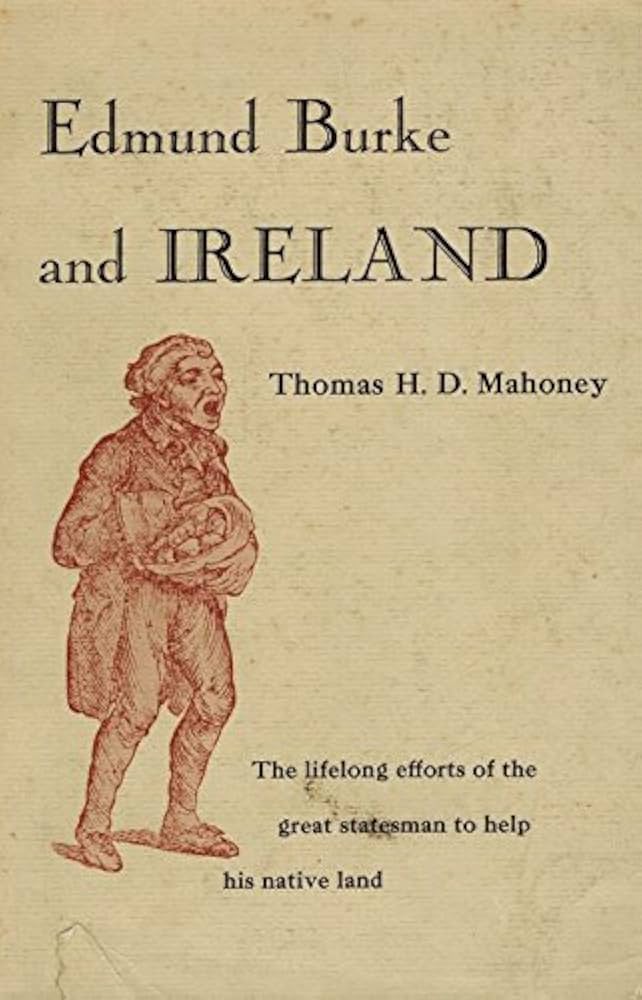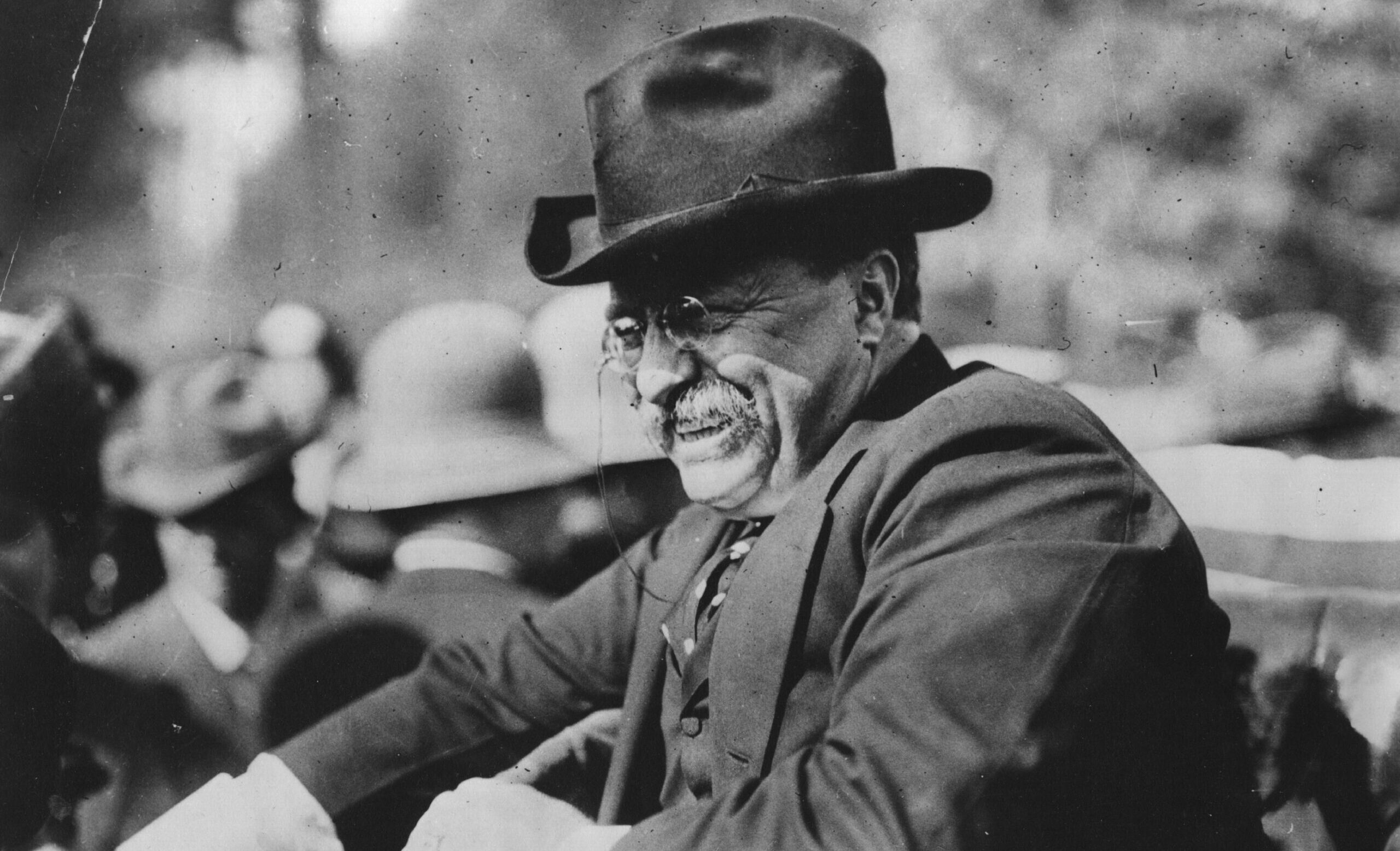Burke left his native Ireland in 1750 to study in London for the law, his father’s profession, but instead became a writer, a politician, and an expatriate. Without losing his brogue or a clannish affection for Irish relatives and friends, he became an Englishman, a Bucks County squire. Only four times did he revisit the land of his birth. Twice in the early 1760s he spent a parliamentary winter in Dublin serving as private secretary to William Gerard Hamilton, secretary to the lord lieutenant; and in 1766 certain personal and family affairs drew him back for a two months’ stay. But after that “the whole chart of the country”—so he told his friend O’Hara—began to wear out of his memory, and he did not return until twenty years later (for a few days only) “to make my son known there.” His friends resident in Ireland dwindled. He left the management of a modest property in County Cork, inherited from a brother, in the hands of local relatives. Party politics and his English estate absorbed his energies, and a distaste for Ireland seems to have grown in him. Nevertheless, these continued connections with that country never ceased to influence him, and they even form a principal part of his history as a British statesman. Thirty-four years ago William O’Brien related that part in his Edmund Burke as an Irishman, but fresh materials have since become available for a better and more realistic history of Burke’s conduct respecting Ireland. His private papers, which bulge with unprinted letters from Irish correspondents, were opened to scholars eleven years ago. His intimately self-revealing letters to Charles O’Hara, head of an ancient family in County Sligo and member of the Irish parliament, have been published. A new edition of his correspondence has begun to appear, which will include every Burke letter known to be extant; and hardly a year in the last decade has passed without the appearance of new studies of Burke. Thus it became possible for Professor Mahoney to bring the history of Burke and Ireland up to date.
Apart from a continuing personal interest in friends and relatives there, Burke’s lasting concerns with Ireland derived from his detestation of the penal and proscriptive laws against the Catholics, and from his conviction of the value to both countries of Ireland’s subordinate connection with England. He was raised in a family of mixed marriage, his father conforming to the established Church while his mother adhered to her ancestral Catholic faith. She was a Nagle, descendant of a leading Cork family of Norman foundation whose fortunes had been ruined by the triumph of William III’s partisans in 1690. Burke spent some of his boyhood years with his mother’s Catholic relatives in the Blackwater valley, even attended a “hedge school” there, and never lost what his friend Lord Charlemont once described as a “constitutional bent towards popery.” So that his lifelong championship of Irish Catholic rights and hopes was much more than an expression of abstract justice; it was related to persons, to people of his own blood. Burke always was shy of his father, even quarreled with him, and almost nothing is known of a connection with any near relatives on that side of his family; but he maintained the Nagle ties with fidelity and great affection. It is hardly too much to say that the Catholic people of Ireland were to him his Nagle relatives in extended dimension.
While serving with Hamilton in Dublin Castle he wrote his famous Tract on the Popery Laws, damning them as “repugnant to humanity and good sense,” and encouraged the leading Catholics—all friends of his—to muster sufficient courage to petition government for relief. He was instrumental in winning the assent of the British government to the first Catholic relief act passed by the Irish parliament in 1778. It was the initial breach in a system unmatched for iniquity in the Western world until the Nuremberg laws of 1935. “You abhorred it, as I did, for its vicious perfection,” wrote Burke to Sir Hercules Langrishe. “For I must do it justice; it was a complete system, full of coherence and consistency, well digested and well composed in all its parts. It was a machine of wise and elaborate contrivance, and as well fitted for the oppression, impoverishment, and degradation of a people, and the debasement in them, of human nature itself, as ever proceeded from the perverted ingenuity of man.” In the early 1790s, when some of the Catholic leaders were tempted to embrace the principles of the French Revolution in order to overthrow the Protestant Ascendancy, Burke and his son not only cautioned them wisely against such a course but effectively helped them to obtain voting rights. Even in retirement from public life Burke counseled and encouraged the gallant Lord Lieutenant Earl Fitzwilliam, who might have ended the proscriptive system if the British ministry of William Pitt had not recalled him and thrown their support to his enemies. Only against Jacobinism and British tyrannical rule in India did Burke direct a moral passion equal in intensity to that which animated his efforts to obtain justice and tranquillity in an Ireland cleansed of Ascendancy misrule.
Support of Catholic hopes and claims was, in the circumstances of that age, wholly consistent with Burke’s dislike of any sort of “patriotism” in Ireland that militated against the dependent link with Great Britain. He always saw the superior power of England as an actual or potential brake upon the rapacity of the Protestant oligarchy, and therefore feared an Irish legislature loose from British restraints. Thus he deplored the Octennial Act of 1768, limiting the duration of the Irish parliament, because it was a “patriot measure” sponsored by a party unfriendly to British superiority. He opposed allowing the Irish government to augment its army lest that be used for domestic oppression. He zealously seconded and assisted the campaign in 1773 of his political chief, Rockingham, to prevent the Irish legislature from voting a tax on the rent rolls of absentee landlords and grounded his argument on the impropriety of a subordinate legislature’s penalizing a free choice of residence within the imperial community. It is true that in 1775 he wished the Irish parliament to attempt a mediatorial role in the Anglo-American quarrel instead of supinely endorsing British coercion of the colonies; but then he never had equated Ireland’s dependency with a servile submission to an ill-advised British king. Ireland ought, he believed, to enjoy a generous constitutional freedom but that ought not to be asserted against her own self-interest which nature had united with England’s. For that reason he deplored the legislative independence exacted from Great Britain in 1782, fearing rightly that it would serve the interests of the Ascendancy. Afterwards, however, he wished to see the new constitutional relationship respected by the British government and therefore opposed Pitt’s commercial propositions of 1785 for a customs union of the two countries. Since that promised economic advantage to Ireland and Burke had on repeated occasions since 1766 attempted to win benefits for Irish trade, Professor Mahoney sees here an inconsistency in his conduct and attributes his opposition to the exigencies of factional politics. However, an Anglo-Irish customs union must have been a likely prelude to the legislative union that Pitt ultimately established in 1801. Burke had always thought such a union politically imprudent.
Professor Mahoney’s history of Burke’s Irish politics is generally accurate in fact and just in interpretation, but the work is not exempt from adverse criticism. There are some unfortunate omissions and errors of fact, and the author has not always been rigorously critical in the management of his sources. No mention is made of Burke’s paper written in the early 1760s on Ireland and the public debt, although this document is among his literary remains. Overlooked too is the memorandum of Burke’s conversation with Pitt on the Irish Catholic question in October 1792; yet this is a key document for explaining a change in British government policy on the question of granting further concessions to the Catholics. Professor Mahoney seems to have ignored the interesting genealogical studies of Basil O’Connell, who has thrown new light on Burke’s concern for the safety of his Nagle relatives in the repression of Whiteboy crimes in the 1760s. The basis for stating that Jane Nugent, Mrs. Edmund Burke, was a Catholic who conformed to the Church of England after her marriage is very unsound; it consists only of a statement of Burke’s Quaker friend, Shackleton, that found its way into the press. Because Burke never denied it, as he never denied or affirmed any statement in newspapers about himself or family, Sir Philip Magnus—most erratic of Burke’s biographers—wrongly deduced that it was true. The fact is—and until Magnus wrote, this never was denied—that Jane Nugent, like her husband, was the issue of a mixed marriage, her Catholic father, Dr. Christopher Nugent, having been united with a Presbyterian woman. As was then common in such marriages, the sons were raised in the religion of the father and the daughters received the faith of the mother; thus Dr. Nugent’s son, John, became Catholic and Jane was Protestant, for the same reason that Burke’s sister, Juliana, was Catholic. Other instances of an incautious reliance on Magnus might be cited. Nor do these few exceptions exhaust the criticism that may fairly be made of Professor Mahoney’s work. The writing lacks grace, sometimes even grammatical accuracy; and there is so much well-known extraneous matter brought into the book that it spreads into a biography. Had it been more pointedly directed upon the subject of Burke and Ireland, its organization would have been more successful.
Ross J. S. Hoffman (1902–1979) was an American historian, writer, and educator who specialized in Modern European History and International Affairs.















